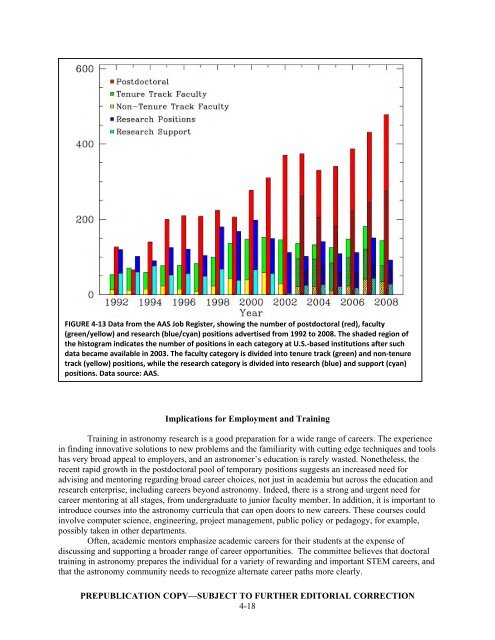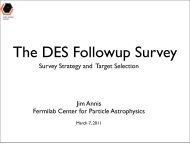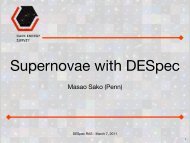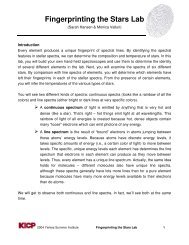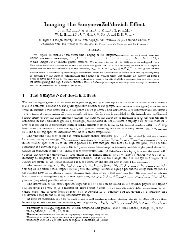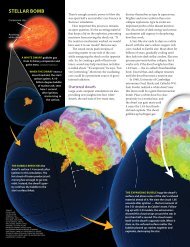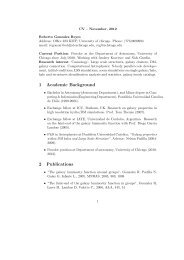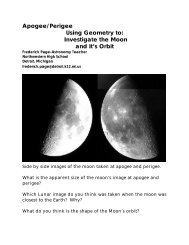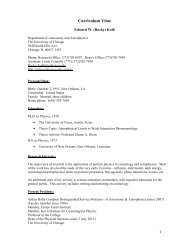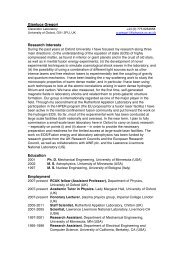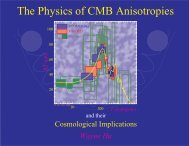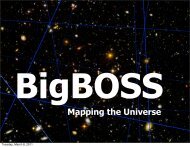prepublication copy - The Department of Astronomy & Astrophysics ...
prepublication copy - The Department of Astronomy & Astrophysics ...
prepublication copy - The Department of Astronomy & Astrophysics ...
Create successful ePaper yourself
Turn your PDF publications into a flip-book with our unique Google optimized e-Paper software.
FIGURE 4‐13 Data from the AAS Job Register, showing the number <strong>of</strong> postdoctoral (red), faculty<br />
(green/yellow) and research (blue/cyan) positions advertised from 1992 to 2008. <strong>The</strong> shaded region <strong>of</strong><br />
the histogram indicates the number <strong>of</strong> positions in each category at U.S.‐based institutions after such<br />
data became available in 2003. <strong>The</strong> faculty category is divided into tenure track (green) and non‐tenure<br />
track (yellow) positions, while the research category is divided into research (blue) and support (cyan)<br />
positions. Data source: AAS.<br />
Implications for Employment and Training<br />
Training in astronomy research is a good preparation for a wide range <strong>of</strong> careers. <strong>The</strong> experience<br />
in finding innovative solutions to new problems and the familiarity with cutting edge techniques and tools<br />
has very broad appeal to employers, and an astronomer’s education is rarely wasted. Nonetheless, the<br />
recent rapid growth in the postdoctoral pool <strong>of</strong> temporary positions suggests an increased need for<br />
advising and mentoring regarding broad career choices, not just in academia but across the education and<br />
research enterprise, including careers beyond astronomy. Indeed, there is a strong and urgent need for<br />
career mentoring at all stages, from undergraduate to junior faculty member. In addition, it is important to<br />
introduce courses into the astronomy curricula that can open doors to new careers. <strong>The</strong>se courses could<br />
involve computer science, engineering, project management, public policy or pedagogy, for example,<br />
possibly taken in other departments.<br />
Often, academic mentors emphasize academic careers for their students at the expense <strong>of</strong><br />
discussing and supporting a broader range <strong>of</strong> career opportunities. <strong>The</strong> committee believes that doctoral<br />
training in astronomy prepares the individual for a variety <strong>of</strong> rewarding and important STEM careers, and<br />
that the astronomy community needs to recognize alternate career paths more clearly.<br />
PREPUBLICATION COPY—SUBJECT TO FURTHER EDITORIAL CORRECTION<br />
4-18


